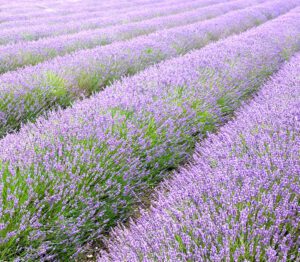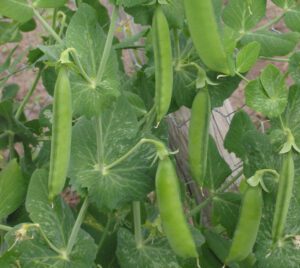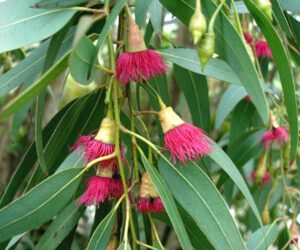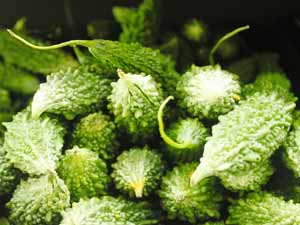Commercial tea farming is not a new business idea. It is actually a very old and traditional business. Many people are already doing this business commercially for making money.
Tea is actually an aromatic beverage prepared by pouring hot or boiling water over cured or fresh leaves of Camellia sinensis, an evergreen shrub native to China and other East Asian countries.
Tea is among the most popular drink. It is actually the most widely consumed drink in the world after water. Tea has a stimulating effect in humans primarily due to it’s caffeine content.
There are actually many different types of tea available throughout the world. Some of these types have a cooling, slightly bitter and astringent flavor, while other types have vastly different profiles that include sweet, nutty, floral or grassy notes.
Tea plant is an evergreen plant that grows mainly in tropical and subtropical climates. Some tea varieties can also tolerate marine climates and are mainly cultivated as far north as Cornwall in England, Perthshire in Scotland, in Scotland, Vancouver Island in Canada, and Washington in the United States.
Tea plants are propagated from seed and also from cuttings (about 4 to 12 years are needed for a plant to bear seed and about three years before a new plant is ready for harvesting).
In addition to a zone 8 climate or warmer, tea plants require at least 127 cm (50 inches) of rainfall per year and prefer acidic soils.
Many high-quality tea plants are cultivated at elevations of up to 4,900 feet (1,500 meters) above sea level. Although the plants grow more slowly at these heights, but they acquire a better flavor.
Generally a tea plant will grow into a tree of up to 52 feet (16 meter) if left undisturbed. But the cultivated plants in the garden are generally pruned to waist height for ease of plucking.
The short plants also bear more new shoots which provide new tender leaves and increase the quality of the tea.
However, commercial tea farming is a very popular, easy and profitable business. You can start this business for making money. Here we are trying to describe more about starting and operating commercial tea farming business.
Health Benefits of Consuming Tea
Two types of tea are marketed commercially. One is black tea and the another one is green tea. Both are good for health. Here we are trying to describe about health benefits of both black tea and green tea.
Black Tea
Black tea is one of the most consumed beverages in the world after water. It is stronger in flavor and contains more caffeine than other teas, but less caffeine than coffee.

Consuming black tea on a regular basis has numerous health benefits. Here we are trying to describe the top advantages or health benefits of consuming black tea.
- Black tea contains a group of polyphenols that have antioxidant properties. And you may know that consuming antioxidants may help to decrease the risk of chronic disease and improve your overall health.
- The gut houses trillions of bacteria and the majority of your immune system. Polyphenols and antimicrobial properties found in black tea may help improve gut health and immunity.[1]
- LDL and HDL are two types of lipoproteins that carry cholesterol throughout the body. Too much LDL in the body can increase the risk of heart disease. Studies have found that black tea may help to reduce LDL levels.
- Black tea contains polyphenols, which may help fight cancer cells in the body. Although consuming black tea will not cure cancer, it may help decrease cancer cell development.
- Black tea is a great non-sweetened beverage that can help improve the use of insulin and reduce blood sugar.
- Black Tea contains flavonoids, which are beneficial for heart health. Regular consumption of black tea may help to reduce the risk of heart disease.
- According to some studies, drinking black tea on a regular basis may help to decrease blood pressure (but research is mixed).
Green Tea
Green tea is not yet as popular as black tea. But it is touted to be one of the healthiest beverages on the planet.

It is loaded with antioxidants that have many health benefits. Here we are trying to describe the top green tea health benefits.
- Green tea is loaded with polyphenol antioxidants (including a catechin called EGCG). And all these antioxidants can have various beneficial effects on health.
- The bioactive compounds in green tea can have various protective effects on the brain. And they may reduce the risk of dementia (a common neurodegenerative disorder in older adults).
- Some studies show that green tea may lead to increased weight loss. It may be particularly effective at reducing the dangerous abdominal fat.
- According to some controlled studies, green tea may cause mild reductions in blood sugar levels. It may also lower the risk of type 2 diabetes.
- Consuming green tea on a regular basis may help to prevent cardiovascular disease.
- Coffee is much higher in caffeine than green tea. Green tea also contains the amino acid L-theanine, which can work synergistically with caffeine to improve brain function.
- The catechins in green tea may inhibit the growth of bacteria in the mouth. And this will ultimately help to reduce the risk of bad breath.
- Green tea is loaded with powerful antioxidants that may protect against cancer.
- According to some studies, green tea may boost metabolic rate and increase fat burning in the short term (although not all studies agree).
- Some studies show that people who drink green tea regularly may live longer than those who don’t.
Advantages of Tea Farming Business
Commercial or large scale tea farming is a very easy and simple business. At the same time it is also a popular business, and beginners with little experience can also start this business.
Although, having practical experience or live training will be very beneficial for boosting your profits. Here we are trying to describe the top advantages of tea farming business.
- High demand and value of tea is the main advantage of commercial tea farming business. Tea is the second most popular drink after water in the world.
- Commercial or large scale tea farming is an established business and many people are already doing this business for making profits.
- It’s an old and profitable business, so you don’t have to worry much about starting and operating this business.
- Initial investment requirement in commercial tea farming is very high. But you will be able to make good profits from your business once established.
- Tea has a great demand and value in the market. So, you don’t have to worry much about marketing your products.
- The tea plants are generally very strong and hardy, and require less caring and other management. Caring the tea plants is very easy and simple.
- Commercial tea farming is an established business and it is very profitable. So, it can be a great employment source for the people, especially for the educated but unemployed people.
- Consuming tea has numerous health benefits. And you can enjoy fresh tea if you start your own tea production business.
How to Start Tea Farming Business
Starting tea farming business is not as easy as starting other crop farming business. It require some knowledge and experience. So it will be better if you can have a training before starting this business.

Try to learn from an expert if you are a beginner. However, here we are trying to describe more about the steps of starting and operating a successful tea farming business from planting, caring to harvesting and marketing.
Site Selection
Tea plants generally thrive well in deep, well-drained and friable loamy soils. Virgin forest soils tat are rich in humus and iron are the best-suited soils for tea plantations and a large proportion of potash and phosphorus in the main soil gives a special flavor to the tea.
Water-logging will damage the plants. So try to ensure there is an easy way of draining the soil.
Land Preparation
As a part of land preparation in tea plantation, a good dose of nitrogenous fertilizers like ammonium sulfate and organic matter should be added to the soil. Soil acidic pH level should be in the range of 4.5 to 5.5.
Climate Requirement
Tea plants generally require a moderately humid and hot and climatic conditions. Tea plants thrives well in humid and hot weather condition.
The optimum temperature range for tea plant growth is between 20°C and 33°C. And the temperature above 35°C and below 10°C can damage the tea plant’s growth.
Tea plants generally require well-distributed rainfall from 150 cm to 300 cm throughout the year. Tea plants are generally shade loving plants and they grow more vigorously when they are planted along with shady tree areas.
Purchase Seeds/Cuttings
Tea plants are propagated from seed and cuttings (about 4 to 12 years are needed for a plant to bear seed and about three years before a new plant is ready for harvesting). You can purchase either seeds or cuttings depending upon the availability in your area.
Planting
This is the most important part of commercial tea farming business. Correctly planted tea plants establish in the field quickly, grow vigorously and come into full bearing earlier. Slight error during planting can cause a high percentage of mortality or permanent setback to the plants.
Planting of tea plants can be done in April-June and September-October or October-November with adequate irrigation. Periods of heavy rains should be avoided. Tea plants are planted in two types.
Pit Planting
Pit planting for tea farming is followed when the spacing between plants is wide enough to allow digging of individual pits of the proper size and without much difficulty.
The pits should be about 45 cm wide and 45 cm deep, circular and straight walled. Smaller pits restrict root growth and retard shoot growth and development.
The excavated soil is conditioned by mixing with 4-5 kg well decomposed cattle manure or 150 to 200 kg well decomposed oil cakes and returning the soil into the pits. Add 30 grams rock phosphate and 30 grams SSP at the time of planting.
Trench Planting
Trench planting method for commercial tea farming is adopted for closer spacing and in heavy soils. Trenches 30 cm wide and 45 cm deep are dug along the rows.
The excavated soil is conditioned and returned back as in case of pits and tea is planted directly on the trenches.
Caring
Tea plants require additional caring for better growth of the plants and also for good production. Here we are trying to describe more about the common caring process for commercial tea farming business.
Fertilizing
Application of additional fertilizers is not required in most cases. You can consult with your local agriculture extension office if you need any help.
Watering/Irrigation
Sprinkler irrigation is the most widely used method in tea gardens of Northern area. Drop irrigation is confined to seed baris.
Mulching
Mulching helps to retain moisture into the soil. You can use organic materials for mulching.
Weed Control
Mulching will help to control most of the weeds. You can remove additional weeds either by hand or by tools.
Pruning
Pruning is an important task and should be carried out to maintain the proper shape of tea bush to a height of about 1 meter with about the same diameter.
The objective of pruning is to have new shoots bearing soft tea leaves in plenty and to make comfortable plucking of tea leaves from the ground.
Pests & Diseases
Pests that can afflict tea plants include mosquito bugs, genus Helopeltis, which are true bugs and not to be confused with dipterous insects of family Culicidae (‘mosquitos’).
Mosquito bugs can damage leaves both by sucking plant materials, and by the laying of eggs (oviposition) within the plant. Spraying with synthetic insecticides may be deemed appropriate. Other pests are Lepidopteran leaf feeders and various tea diseases.[2]
Harvesting
Harvesting of tea leaves requires intensive labor for plucking the tea leaves. Your business will be very profitable if you can use cheap labor for harvesting this crop.
Yield
It’s very difficult tell the exact figure. But an average of 1.5 tons of green tea leaves can be produced from one acre land.
Marketing
This is the most important part commercial tea farming business. Your business will not be profitable if you can’t market your products well. So, determine your marketing strategies before starting this business.
These are the common steps and ways for starting and operating a successful tea farming business. Hope this guide has helped you! Good luck & may God bless you!






